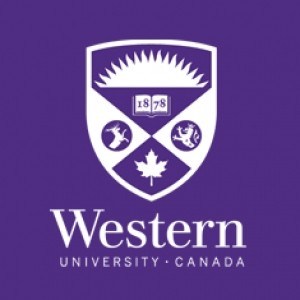Photos of university / #westernuniversity
Our department's Master’s program encompasses three fields: Statistical Theory, Actuarial Science and Financial Modelling. Students in the Statistical Theory field will study probability, inference, statistical computing and data analysis in depth. This course of study introduces students to some of the deeper aspects of the theory of probability and statistics while exposing them to many of the tools, both computational and statistical, used in modern data analysis. Students will learn how to carry out formal statistical research within the context of a major project. Students in the Statistical Theory Field should expect to take 3 or 4 terms to complete their MSc program. The number of terms will be specified in the offer of admission and be based on an evaluation of the student's acadmic background.
- Advanced Probability
- Statistical Computing
- Topics in Statistical Inference
- Generalized Linear Models
- Advanced Data Analysis
- Analysis of brain imaging data
- Time Series
- Probability and Measure
- Advanced Regression
- Parallel Computing
Requirements
- Candidates with an Honors Bachelor's degree or equivalent with sufficient background in Statistical and Actuarial Sciences are eligible to apply for admission to the Statistics MSc program. Acceptance into the program is authorized by UWO's School of Graduate and Postdoctoral Studies (SGPS).
- A candidate with a General Bachelor's degree will be required to apply to the Undergraduate Program in the Faculty of Science as a special student and to complete satisfactorily a minimum of five undergraduate honors Statistical and Actuarial Sciences, Mathematics, and/or Applied Mathematics courses. Upon successful completion of these courses, the student may then apply to the Statistics M.Sc. program in order to be considered for admission.
- The Test of English as a Foreign Language (TOEFL). Minimum acceptable score is 213 for the standard electronic version, 550 for the paper and pencil version, or 86 for the internet version with no individual score below 20. [Western's TOEFL ID is 0984].
- The International English Language Testing Service (IELTS). Minimum acceptable score is 6 out of 9 with no individual score falling below 6.
- A $100 CAD application fee is required for each application.
- Two referees are required; at least one of them must be academic. If you are using a professional reference, they must be from a previously held position related to the program you apply to.
- English translation of transcripts/documents if they are in a language other than English
Scholarships
- Stipends are variable, depending on student performance and background. Typical stipends for Canadians and Permanent Residents are around $18,000 per year and usually include a teaching assistantship, research assistantship and a scholarship. Funding for international students is more limited.
- Natural Sciences and Engineering Research Council (NSERC)
- Ontario Graduate Scholarship (OGS)
The Statistical Theory program at Western University is a comprehensive academic course designed to equip students with a deep understanding of probability, statistical methods, and their applications across various fields. The program emphasizes both theoretical foundations and practical skills, ensuring graduates are well-prepared for careers in data analysis, research, and policy-making. Throughout the course, students explore topics such as probability distributions, inferential statistics, regression analysis, statistical computing, and experimental design. The curriculum also integrates modern data analysis techniques, including machine learning and big data analytics, reflecting current industry trends. Students benefit from a combination of lectures, practical laboratory sessions, and project work, which foster critical thinking and problem-solving abilities. The program is suitable for individuals interested in pursuing careers in academia, government, industry, or research institutions. It often includes opportunities for internships and collaborations with external organizations, providing real-world experience. Faculty members involved in the program are experts in their respective fields, contributing to a dynamic learning environment. Graduates of the Statistical Theory program acquire the skills necessary to interpret complex data, develop statistical models, and contribute to evidence-based decision-making processes. The program also prepares students for further graduate studies in statistics, data science, or related disciplines, supporting lifelong learning and professional development. The program is recognized for its rigorous coursework, comprehensive coverage of statistical principles, and emphasis on practical application, making it a valuable choice for aspiring statisticians and data scientists.


